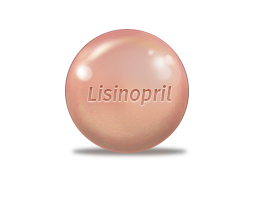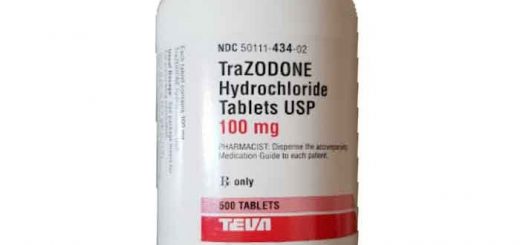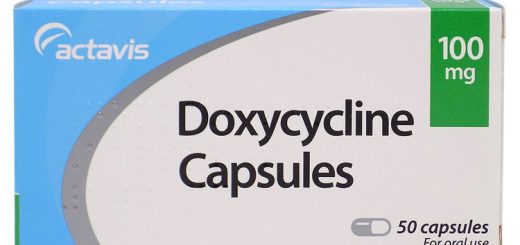Buy Lisinopril tablets online

Buy Lisinopril tablets online
Are you looking to buy Lisinopril tablets online? Look no further! Our online pharmacy offers a convenient and reliable solution for purchasing Lisinopril, a medication used to treat high blood pressure and heart failure. With just a few clicks, you can order your prescribed dosage of Lisinopril and have it delivered right to your doorstep. Rest assured that our Lisinopril tablets are sourced from reputable manufacturers and adhere to strict quality standards. Take control of your cardiovascular health today by purchasing Lisinopril tablets online from our trusted pharmacy. Experience the convenience, affordability, and peace of mind that comes with buying medication online.

What is lisinopril
Lisinopril is used to treat high blood pressure (hypertension), congestive heart failure, and to improve survival after a heart attack. what is Lisinopril is in a group of drugs called ACE (angiotensin converting enzyme) inhibitors. what is Lisinopril can also help improve survival following a heart attack. Lisinopril blocks the angiotensin-converting enzyme, which is normally part of a reaction in the body that causes blood vessels to narrow. Lisinopril comes in tablet form.
Lisinopril hctz side effects
Some medicines cause some minor side effects, but many people ha ve no, or minor side effects. Emergency medical help is required if you have any of these what is Lisinopril side effects: allergic reaction to Zestoretic: hives; severe stomach pain; difficulty breathing; swelling of your face, lips, tongue, or throat. Other noted serious side effects are: eye pain, vision problems; high potassium; low potassium; dry mouth, thirst, nausea, vomiting; feeling weak, drowsy, restless, or light-headed; a red, blistering, peeling skin rash; jaundice; urinating less than usual or not at all; swelling, weight gain, feeling short of breath; or fever, chills, body aches, flu symptoms.
Lisinopril Dosage
Lisinopril dosage will vary, depending on a number of factors, including: age, medical condition of the patient, and the medications you are currently taking. It is important to strictly follow your doctor’s prescription and do not adjust your what is lisinopril dosage unless your healthcare provider specifically instructs you to do so. If you have a history of kidney disease or kidney failure, or liver disease or liver failure, your healthcare provider may start you on Lisinopril lower dose as well, depending on the severity of your disease. The recommended starting dosage of what is lisinopril for people with high blood pressure (hypertension) is 10 mg, taken once daily. If you have hypertension and are already taking a diuretic, your doctor will most likely tell you to stop taking the diuretic before starting what is lisinopril.
Some important information about lisinopril:
Lisinopril is not recommended in pregnant women. It could harm the unborn baby. Drinking alcohol can further lower your blood pressure and may increase certain side effects of what is lisinopril. Do not use salt substitutes or potassium supplements while taking what is lisinopril, unless your doctor has told you to. Vomiting, diarrhea, or heavy sweating can cause you to become dehydrated. This can lead to very low blood pressure, electrolyte disorders, or kidney failure while you are taking what is lisinopril. Drink plenty of water each day while you are taking this medication.
Lisinopril dosage may vary in the cases of adults, geriatric and pediatric population.
Adult Dosage:
In cases of hypertension, the initial Lisinopril dosage is 10 mg (oral consumption) once a day (this applies to patients not receiving diuretic). Maintenance Lisinopril dosage would be 20 to 40 mg once a day and with some patients requiring 80 mg (rare cases).
Adults with Congestive Heart Failure should take an initial Lisinopril dosage of 5 mg orally once a day (applies to patients not receiving diuretic) and a maintenance dosage of 5 to 20 mg once daily (orally)
Patients with Myocardial Infarction should start with an initial Lisinopril dosage of 5 mg orally with subsequent doses of 5 mg orally after 24 hours and 10 mg after 48 hours. Maintenance dosage would be 10 mg once daily.
Adult Lisinopril Dosage for Diabetic Nephropathy: Initial Lisinopril Dosage 10 to 20 mg once daily (oral consumption), maintenance dosage being 20 to 40 mg once daily (oral consumption).
Geriatric dose for Hypertension: Initial dose: 2.5 to 5 mg once daily (oral consumption), maintenance dosage: dosage can be increased at 2.5 to 5 mg/ day increments with an interval of one to two weeks.
Pediatric dose for Hypertension (this applies to pediatric patients of age 6 or 6 plus): Initial Lisinopril dosage – .07 mg/kg (up to 5 mg in total) once daily. Maintenance dosage: to be based on blood pressure response.
Renal Dose Adjustments: CrCl 10 up to 30 mL/min – The Initial dosage is 5 mg daily (oral consumption), once and for CrCl lesser than 10 mL/min: Initial dosage is 2.5 mg once a day (oral consumption)
No adjustments of dosage have been recommended for liver patients.
Though antihypertensive effects tend to diminish towards the dosing intervals regardless of the administered dose, the recommended dosage for Lisinopril Dosage is the same is 10 mg daily. A good method to detect this is by measuring the BP just prior to dosage consumption. This would help determine whether satisfactory control is achieved for a time period of 24 hours; and if not; then the dosage may be increased. Further a diuretic may also be added to control the BP if Lisinopril alone does not help.
For treating heart failures, Lisinopril Dosage is indicated as an adjunctive therapy with diuretics and digitalis.
Lisinopril Drug Interactions
Lisinopril Drug Interactions: Between Lisinopril and spironolactone
Clinical close monitoring is recommended for concomitant use of angiotensin converting enzyme (ACE) inhibitors and potassium-sparing diuretics as this may increase the risk of hyperkalemia, a result of Lisinopril Drug Interactions. The secretion of aldosterone would be decreased due to Inhibition of ACE, which in turn can lead to increases in serum potassium. Patients with normal renal function may not be affected much as there might be only a mild reaction, due to Lisinopril Drug Interactions. Patients with risk factors such as renal impairment, old age, diabetes, severe or worsening heart failure have experienced life-threatening and fatal hyperkalemia within as little as a few days to weeks of being administered the combination. Patients with renal impairment have experienced Lisinopril Drug Interactions such as Hyperkalemia when they used both ACE inhibitors alone and diuretics alone. This Lisinopril Drug Interactions may also cause deterioration of renal function, particularly in patients suffering from chronic heart failure, and further risk at a graver level is possible if they are sodium depleted or dehydrated after excessive dieresis.
If patients with renal impairment, diabetes, worsening heart failure are treated with ACE inhibitors together with potassium-sparing diuretics, necessary precaution should be taken. Regular checks should be made with regards to serum potassium and renal function, and if not very closely monitored, then, potassium supplementation must be avoided is possible, another of Lisinopril Drug Interactions. Patients must be provided counseling with regards to Lisinopril Drug Interactions and must be made aware that if in case they experience signs and symptoms of hyperkalemia wuch as confusion, tingling of the extremeties, irregular heart beat they should seek immediate medical attention without little or no delay. Spironolactone, if to be used with an ACE inhibitor, the dosage should not exceed 25 mg per day.
Lisinopril Drug Interactions: Between Lisinopril and hydrochlorothiazide
Diuretics and angiotensin converting enzyme (ACE) inhibitors, though frequently combined and admisnistered to patients, these may carry side effect of Lisinopril Drug Interactions. Compared to being administered with each drug alone, a combined usage may cause hypotension and hypovolemia . The urinary secretion of sodium may also be increased due to some ACE inhibitors. Acute hypotensions are reported to have experienced by some patients those on dialysis or a dietary salt restriction. They have also reported to have experienced light headedness and dizziness after taking the initial dose of ACE inhibitor. ACE inhibitors have found to be the cause for renal insufficiency or even acute renal failure; this is mostly in patients with sodium depletion or renal artery stenosis.







